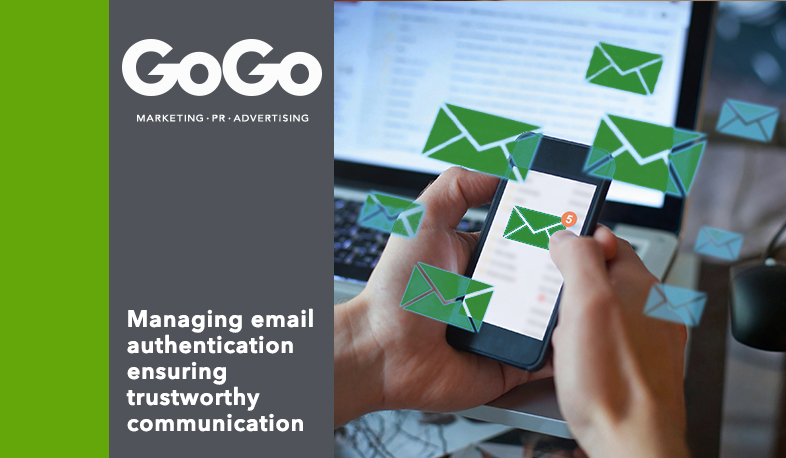In the dynamic digital business landscape of today, email remains a vital tool for organisations worldwide. Nevertheless, there is always a risk from email spoofing, this occurs when fraudulent people pose as reliable senders. Data breaches, reduced customer trust, and reputational harm are all possible outcomes of this. However, email authentication offers effective protection against these types of cyberattacks. It creates an email verification system that ensures messages are sent by the authorised person and haven’t been manipulated in transit.
The Importance of Email Authentication
Implementing email authentication safeguards your business in two crucial ways:
Securing Brand Reputation: Phishing attacks can be launched via spoof emails, tricking targets into disclosing private information. By confirming the validity of the sender, email authentication protects your brand against spoofing efforts that can damage your reputation.
Enhancing Email Deliverability: Unauthenticated emails are frequently rejected by spam filters or sent to the garbage bin because they seem suspicious. Email authentication raises deliverability rates overall by increasing the probability that your valid emails will reach their intended recipients.
Types of Email Authentication
Email authentication is based on three main methods that combine to provide a secure email exchange.
DKIM (DomainKeys Identified Mail): The digital signature that displays on your email is provided by DKIM. By confirming that the content hasn’t been changed throughout the chat, the email’s credibility is guaranteed.
SPF (Sender Policy Framework): SPF serves as an approved list that identifies the email servers that are allowed to send emails under your domain. This authorization helps in preventing spoofing of your domain address by unapproved users.
DMARC (Domain-based Message Authentication, Reporting & Conformance): Emails that don’t pass authentication checks must be processed by recipient mail servers according to strict criteria defined by DMARC. Using DMARC, servers have the option to reject, quarantine, or leave unopened emails.
Effectively use Email Authentication for your Business
Safeguard your business communications with confidence. We are a leading digital marketing firm specialising in email marketing services in the Midlands, can help. Book a call with our marketing specialists in the UK to guide you through the process of implementing email authentication for your domain, ensuring a secure and reliable email environment for your organisation.







